
Capital
Kampala

Population
48.66 million (2023)

Total Area
241,038 (sq km)

Languages
English
Luganda
Swahili
Currency
Ugandan Shilling (UGX)
Greeting
Hello!
Oli otya?
BOOK WITH CONFIDENCE
We are regulated by the following travel organizations.

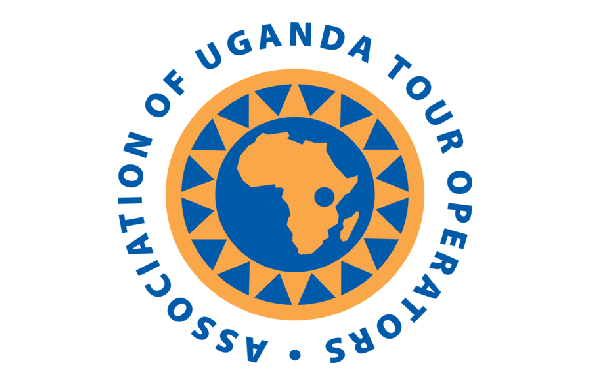
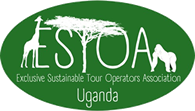


Why Visit?
Home to mountain gorillas, chimpanzees, and the Big 5
Incredible landscape diversity, from rainforest to savannah
Unique adventure activities like white water rafting on the Nile
Affordable and uncrowded compared to other safari destinations
Strong focus on community tourism and sustainable travel
Rich cultural heritage across over 50 ethnic groups
Best time to visit
Dry Season (Jun–Aug, Dec–Feb): Best for safaris and trekking.
Wet Season (Mar–May, Sep–Nov): Fewer crowds, lush scenery, great birding.
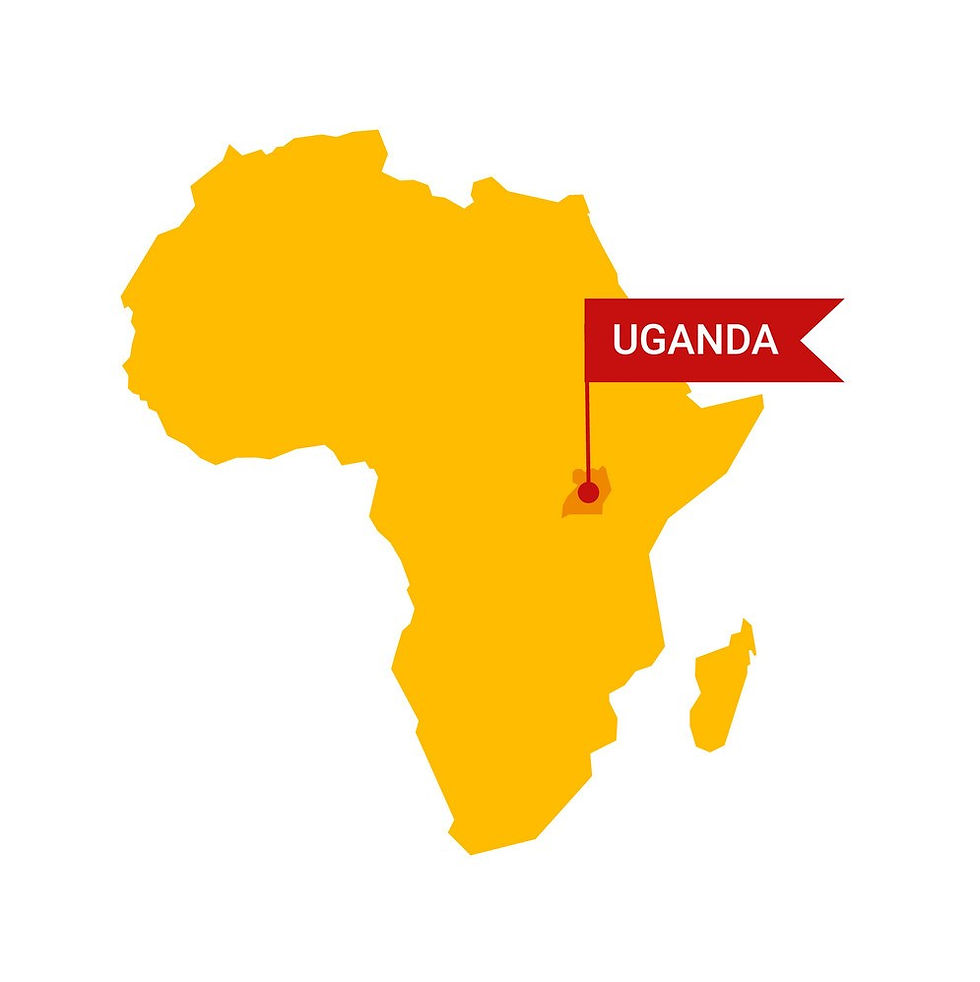
Tour Highlights
Track gorillas in Bwindi, cruise the Nile at Murchison Falls, and meet chimps in Kibale. These curated highlights were handpicked to offer the best of Uganda’s top destinations—mixing wildlife, waterfalls, culture, and adventure into one unforgettable journey through Africa’s most diverse and underrated gem.
Choose from our exclusive selection of tours crafted to highlight the country's top attractions.
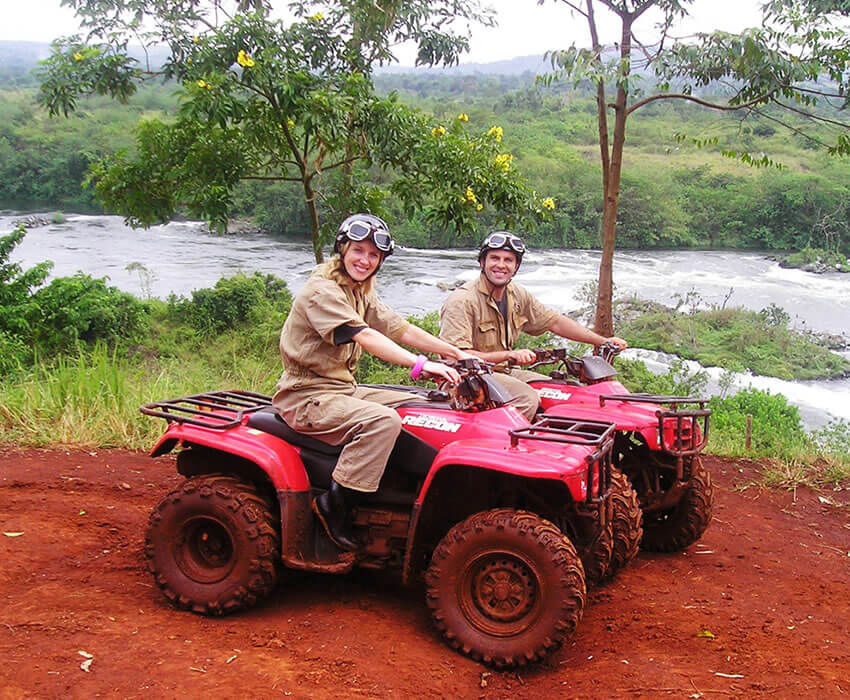
An adrenaline-filled one-day adventure in Jinja! Choose between white-water rafting, kayaking on the Nile’s thrilling rapids or a daring bungee jump over the river for the ultimate adrenaline rush.
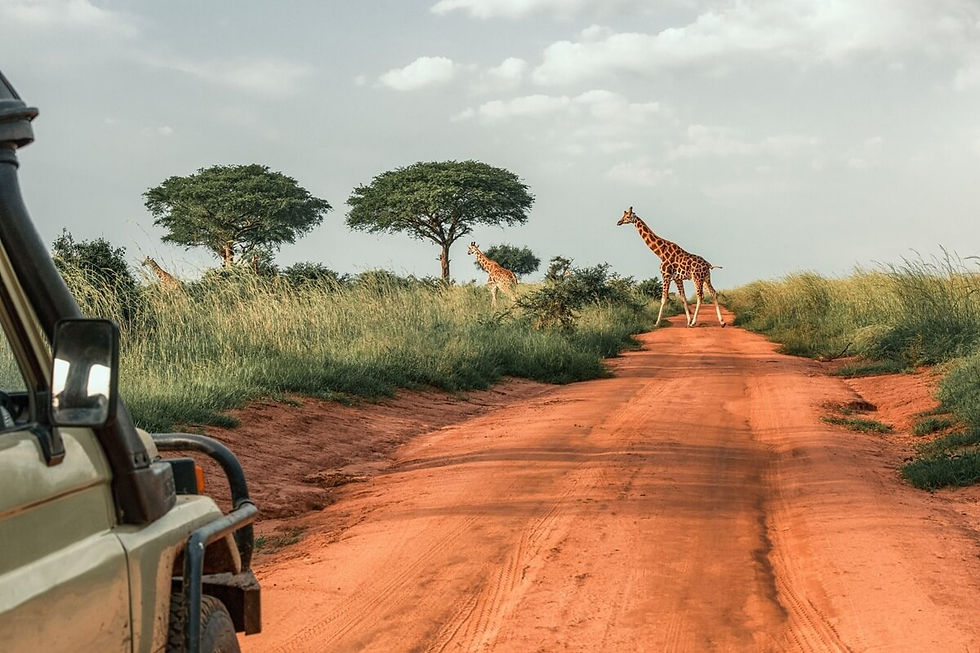
The Classic 3-Day Big-5 wildlife adventure through Uganda’s most iconic national park—featuring game drives, a Nile boat cruise, and the thunderous Murchison Falls.
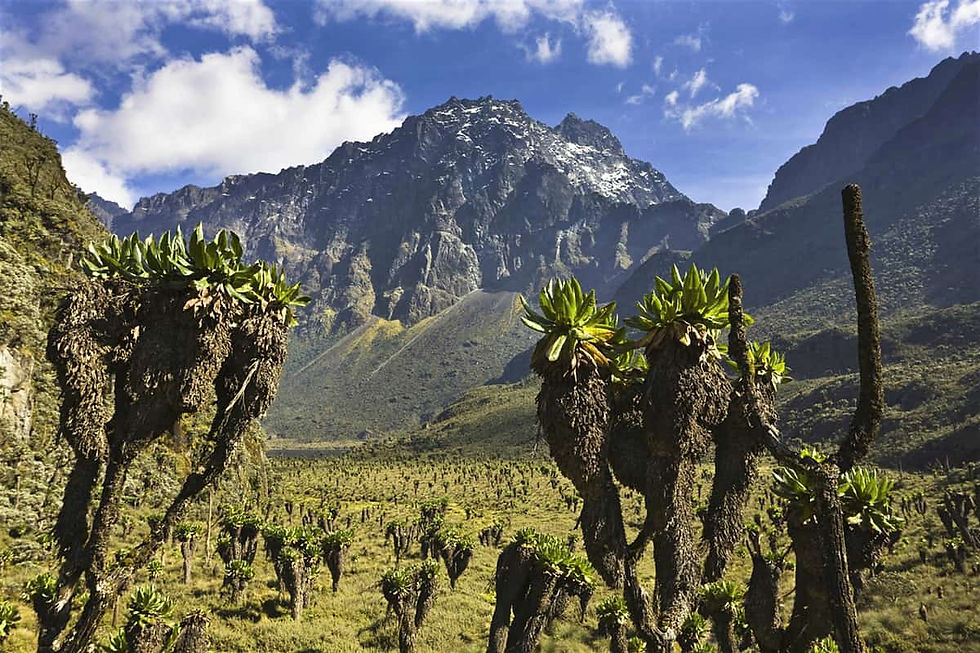
A 6-day trek through lush valleys, bamboo forests, and alpine landscapes to the breathtaking Mutinda Lookout in Uganda’s legendary Rwenzori Mountains.
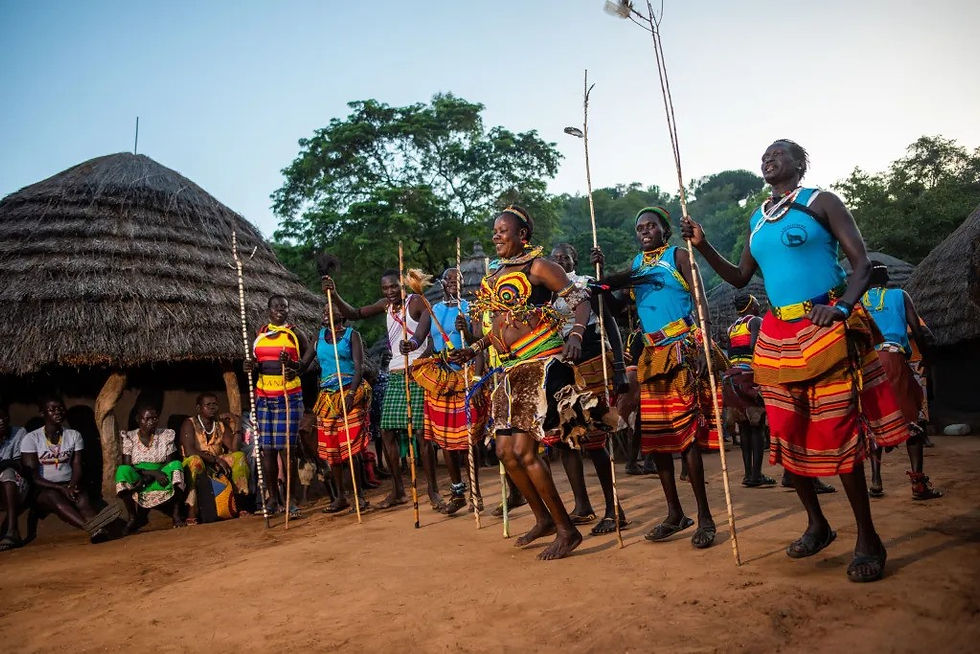
A 7-day adventure into Karamoja's stunning landscapes, from the stunning Sipi Falls to the untamed wilderness of Pian Upe and Kidepo Valley.
Meet our Local Expert
Brenda’s passion for Uganda’s wildlife and culture runs deep. Growing up near Murchison Falls, she has spent her life exploring Uganda’s national parks and forests. With over 8 years of guiding and curating tours, she’s become an expert in crafting customized safari experiences tailored to each traveler’s needs. Brenda’s knowledge of Uganda’s hidden gems, local communities, and unique wildlife encounters is unmatched. Her expertise ensures a personalized, authentic, and enriching experience, and she thrives on introducing visitors to Uganda’s natural beauty and cultural richness.
“I can’t wait to take you to the Top of Murchison Falls—the power, the mist, the roar—it moves something in your spirit. Traveling in Uganda isn’t just about what you see, it’s about how deeply you feel connected to the land and its people.”
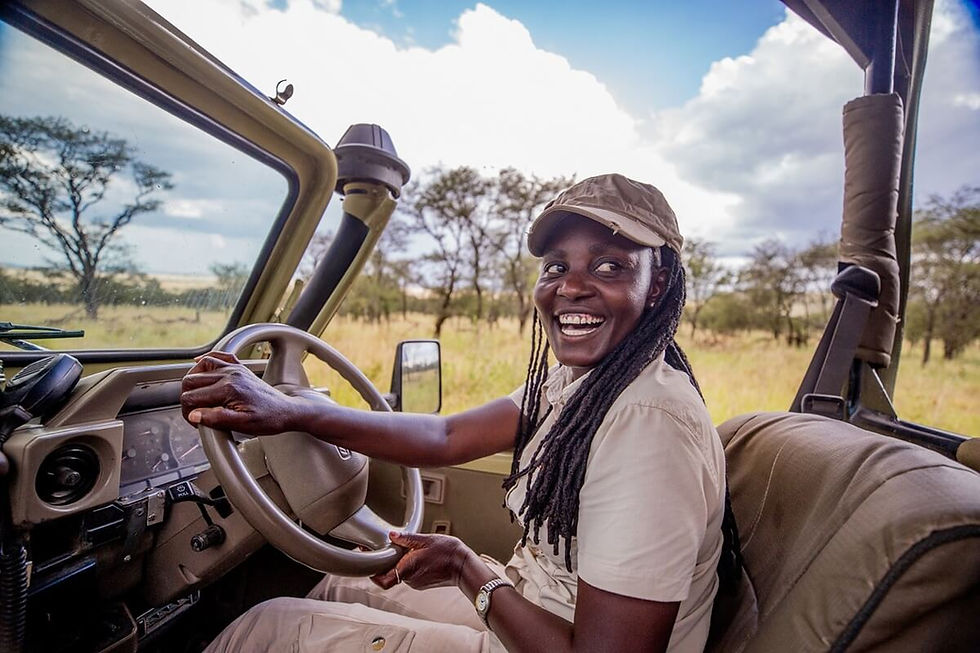
Brenda Akello – Safari Specialist & Storyteller
Common Questions About Our Uganda Safaris
1. When is the best time to visit Uganda for safari and trekking?
Uganda offers year-round travel opportunities, but the dry seasons (December–March & June–September) are considered the best for safaris and gorilla trekking. During these months, vegetation is thinner, making it easier to spot animals, and muddy trails are less of an issue. Gorilla trekking, in particular, is more comfortable when trails are dry, though some prefer the lush greenery of the wet season. If you're a birder, the rainy months (March–May & October–November) bring migratory species and vibrant displays.
2. What are the visa requirements for Uganda?
Most travelers require a Uganda Tourist Visa (USD 50). Apply through the official e-visa portal before travel. You can also opt for the East African Tourist Visa (USD 100), valid in Uganda, Rwanda, and Kenya—ideal if combining countries. Visas on arrival are possible but may involve delays; pre-approval is safer.
3. Do I need vaccines and malaria protection?
Yes. Yellow Fever vaccination is mandatory for all travelers entering Uganda. Additional recommended vaccines include Hepatitis A & B, Typhoid, Meningitis, and Tetanus. Uganda is a malaria-risk zone, so malaria prophylaxis (like Malarone or Doxycycline) is advised. Bring insect repellent and sleeping under mosquito nets is advisable.
4. Besides Game drives, what other activities can I expect?
Uganda safaris are multi-dimensional. Beyond traditional game drives, you can enjoy gorilla and chimpanzee trekking, boat cruises on the Nile or Kazinga Channel, hiking waterfalls, hot air balloon safaris, bush walks, and cultural encounters with communities like the Batwa or Karamojong. For adrenaline-seekers, Jinja offers white-water rafting, bungee jumping, and quad biking. Uganda's variety of landscapes—from lakes to volcanoes—makes it a haven for adventure and nature lovers alike.
5. Is Gorilla trekking safe?
Very safe. Gorilla trekking is carefully regulated by Uganda Wildlife Authority (UWA). You’ll be accompanied by experienced rangers and trackers who are trained in safety and first aid. Encounters are limited to one hour with a habituated gorilla group, and strict rules ensure both traveler and gorilla safety. Rangers maintain a minimum 7-meter distance, and guests with flu-like symptoms are asked not to trek to avoid disease transmission.
6. Is Gorilla trekking difficult, and how fit do I need to be?
Yes, gorilla trekking can be challenging depending on the location of the gorilla family. Treks range from 30 minutes to 6 hours and often involve steep climbs, dense vegetation, or muddy trails. You don’t need to be an athlete, but a reasonable level of fitness helps. Porters are available for hire to carry your backpack and offer a helpful hand. Proper hiking shoes, walking sticks (provided), and layered clothing are essential.
7. What are the age restrictions for trekking experiences?
The minimum age for gorilla trekking is 15, and for chimpanzee trekking, it’s typically 12 to 15 years depending on the park (Kibale, Kalinzu, Budongo, or Kyambura). This is to ensure both safety and maturity for following ranger instructions. For younger children, alternatives include nature walks, cultural tours, or wildlife drives in more accessible areas.
8. How many days do I need for a good Uganda safari?
We recommend 7 to 10 days to experience Uganda’s major highlights. This timeframe allows for gorilla trekking in Bwindi, chimpanzee tracking in Kibale, and game drives in parks like Murchison Falls or Queen Elizabeth. If you're short on time, a 3–5 day safari can cover one or two parks. For an in-depth and relaxed pace, 12–14 days offers full immersion with community visits, boat safaris, and lesser-known parks like Kidepo Valley.
9. Will I have electricity, charging ports, and internet access?
Most lodges use solar-powered electricity or generators. Charging ports are available in rooms or communal areas. Remote locations may restrict electricity to certain hours. Wi-Fi is available at many lodges, but speeds vary. We recommend bringing power banks and unplugging when possible—it’s part of the charm of being in the wild!
10. How will I travel between destinations in Uganda?
Overland travel is by customized 4x4 safari vehicles—perfect for navigating park roads and spotting wildlife. Expect travel times of 3–8 hours between parks, with scenic stopovers. Domestic flights (e.g., Entebbe to Kidepo or Bwindi) are available for time-sensitive itineraries. In Murchison and Queen Elizabeth, boat safaris are part of the adventure.
Reviews of Our Uganda Safaris
This is your Testimonial quote. Give your customers the stage to tell the world how great you are!
Frankie B.
This is your Testimonial quote. Give your customers the stage to tell the world how great you are!
Frankie B.
This is your Testimonial quote. Give your customers the stage to tell the world how great you are!
Frankie B.









